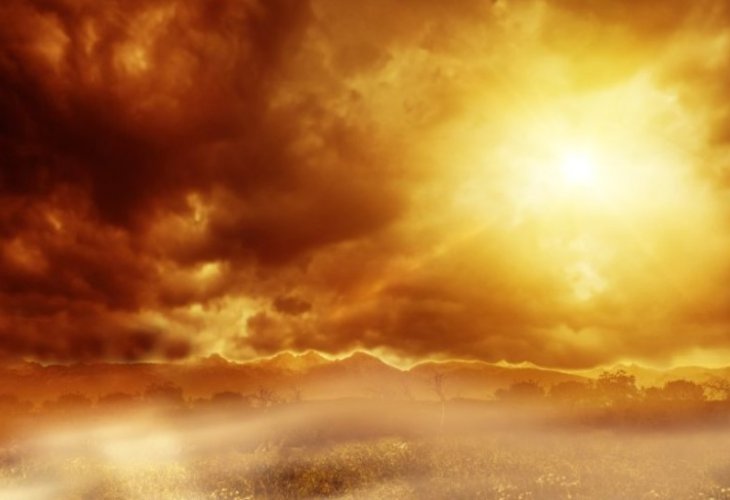Fulfilled Prophecies: An Introduction to Predicting the Future and Understanding Prophecy
Throughout history, many prophets have arisen within the Jewish people, from Moses to Malachi. These prophets left behind numerous prophecies scattered throughout the Bible, foretelling the entire course of history, with some already fulfilled and others yet to come.

The future is one of humanity's most captivating topics. Significant human wisdom is invested in trying to anticipate the future; every personal, state, or social preparation essentially attempts to address 'tomorrow.'
Many claim to predict the future—astrologers, experts, experienced individuals, and charlatans. What they all have in common is that they do not deal with the future itself but with its causes, as the future does not exist and cannot be engaged with. Human wisdom, at best, can analyze the present and attempt to understand how its factors and forces might influence the future.
Despite this, there is one way to discuss knowledge of the future as true knowledge, provided the following two assumptions exist:
1. There is some 'power' beyond the physical limitations (time and space) that governs the world as it wishes and determines what will happen.
2. This 'power' communicates with humans and reveals the future to them.
In Judaism, this concept of receiving information is called 'prophecy.'
Thus, prophecy from the Creator of the world stands independently, fundamentally different from humans engaged in predicting the future.[1]
Such prophecies can be characterized by:
* Phenomena that go against probability and historical experience.
* Scenarios that logic cannot foresee.
* Events that may seem impossible.
* Detailed descriptions of specific processes.
* Events that occur thousands of years after being written.
These elements strengthen the credibility of prophecy and confirm its supra-human source, as the farther a prophecy is from reality, more detailed and long-term it is, if it still comes true, we know with greater certainty that it couldn't have been known or predicted by human attributes or skills, as human beings do not have absolute control over time or nature.[2]
Many prophets arose for the people of Israel throughout history[3], from Moses to Malachi. They left a multitude of future prophecies scattered throughout the Bible, prophesying all of history, some of which have already been fulfilled and others still to be fulfilled.
Surprisingly, these prophecies contain the characteristics we mentioned. Because of this, we, who are on the timeline long after they were written and fulfilled, can put their words on the analysis table and examine their truth using rational tools and a research approach.[4]
It is important to note, according to Jewish sources and the chronological order found in the Torah, the Torah was given at Mount Sinai over 3,300 years ago[5]. However, even according to the most skeptical, there is no dispute that the Torah was written no less than 2,400 years ago when it was translated into Greek in the 'Septuagint.'[6]
In this section, we will endeavor to present some of the prophecies found in the Bible, written in clear and easy-to-understand language[7], so that even someone without a background in biblical text can easily navigate the details of the prophecy and its implications.
Rabbi Zamir Cohen reveals if certain events occurring today are indeed part of prophecies pointing to the end of times? A fascinating and brief must-see lecture:
[1]. As it is said: "I am G-d, and there is none else... declaring the end from the beginning, and from ancient times the things that are not yet done, saying, My counsel shall stand, and I will do all my pleasure" (Isaiah 46:9–10).
[2]. There is no other religion in the world besides Judaism that can point to clearly written prophecies promising detailed unexpected future scenarios, yet available for scientific examination. And for the simple reason that a prophetic promise is too great a risk to take, for in the event that the prophecy does not come true, the prophet and the religion he represents become subjects of ridicule and scorn. (Illustratively, the figure known as Jesus promised his followers that in his generation he would come and redeem them, which, as is well known, did not happen. And Chrysostom, in one of the church councils [in the 3rd century], prophesied that the Jewish people would never return to the land of Israel, and like his teacher, he was proven wrong.)
[3]. In the Babylonian Talmud, Tractate Megillah 14a, it is written: "Many prophets arose for Israel, twice as many as those who came out of Egypt." That is to say, there were 1,200,000 prophets for Israel (of which 48 prophets and 7 prophetesses whose prophecies appear in the Bible).
[4]. The contemplation of the fulfillment of prophecies can bring many benefits:
* Recognition of the 'power'/Creator who knows, cares, and governs events in creation.
* Acknowledgment of the truth of the Torah and its divine origin.
* Strengthening faith in prophecies that have yet to be fulfilled (such as "the coming of the Messiah" and "the resurrection of the dead").
[5]. In the year 1313 BCE.
[6]. In 11 caves near the Qumran ruins in the Judean Desert, ancient sacred writings matching the biblical narrative were found, dating to the second and first centuries BCE, a time known to predate the destruction of the Second Temple in 70 CE.
[7]. Torah prophecies are divided into explicitly clear prophecies and cryptic language prophecies.

